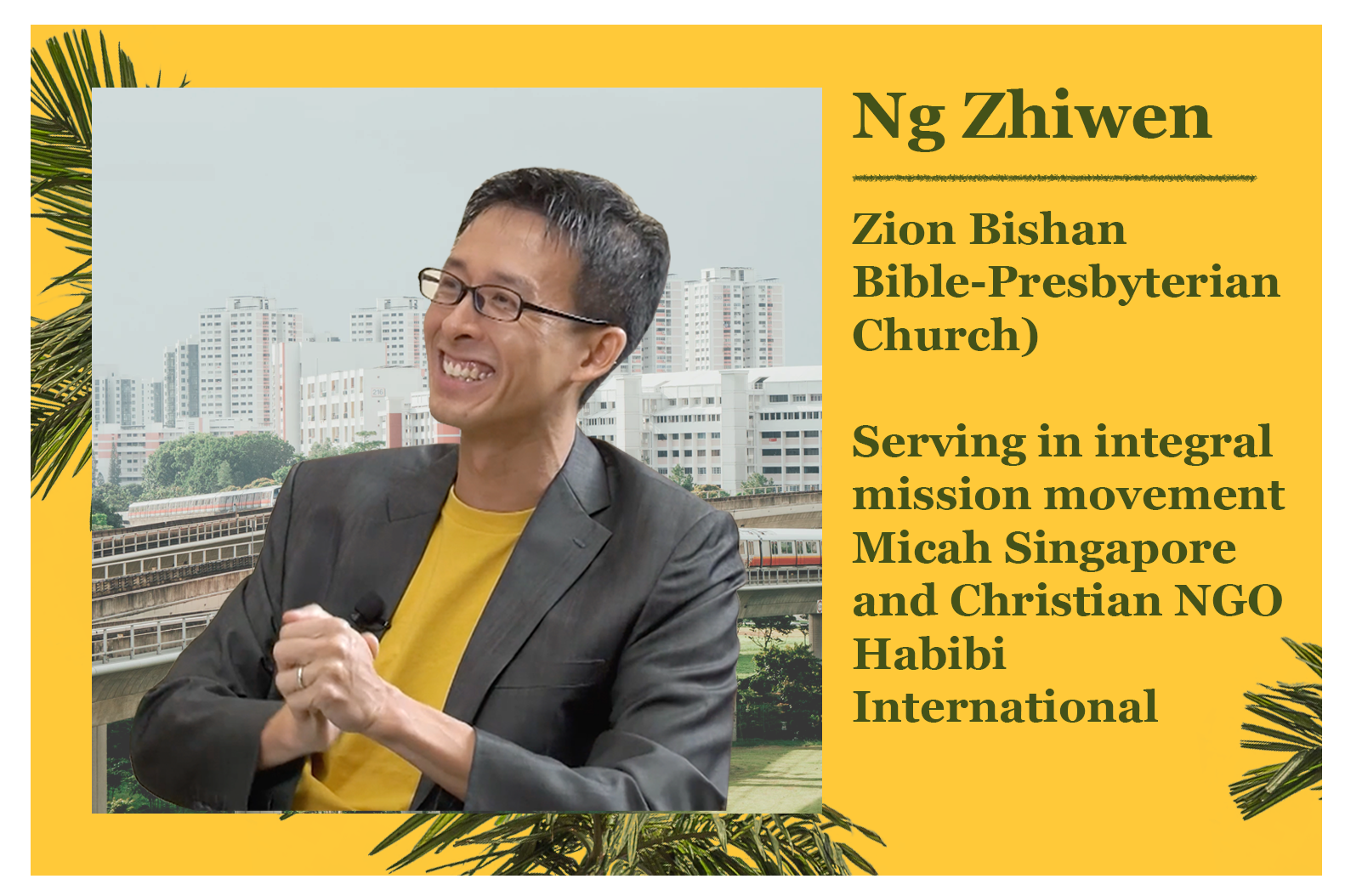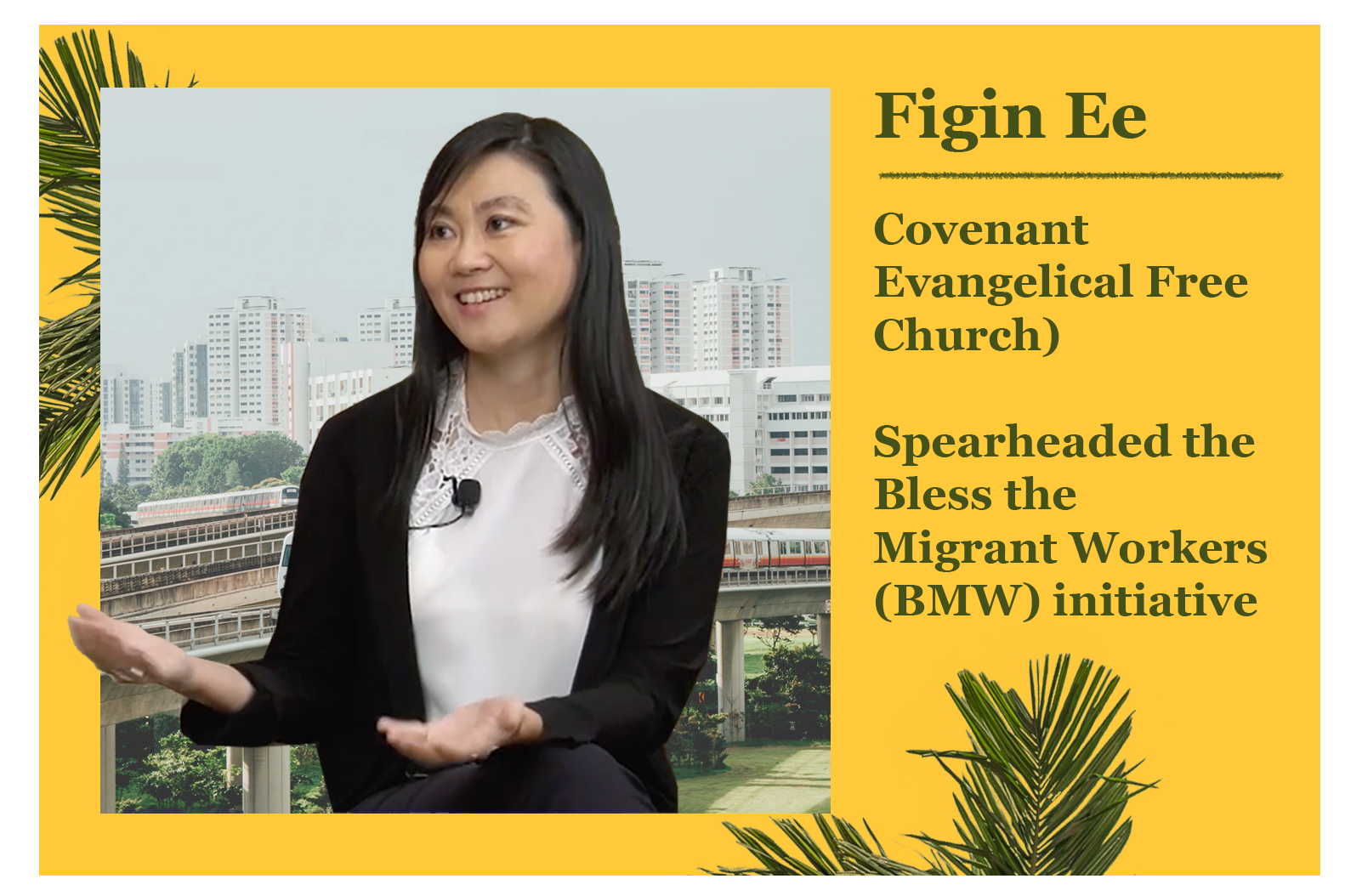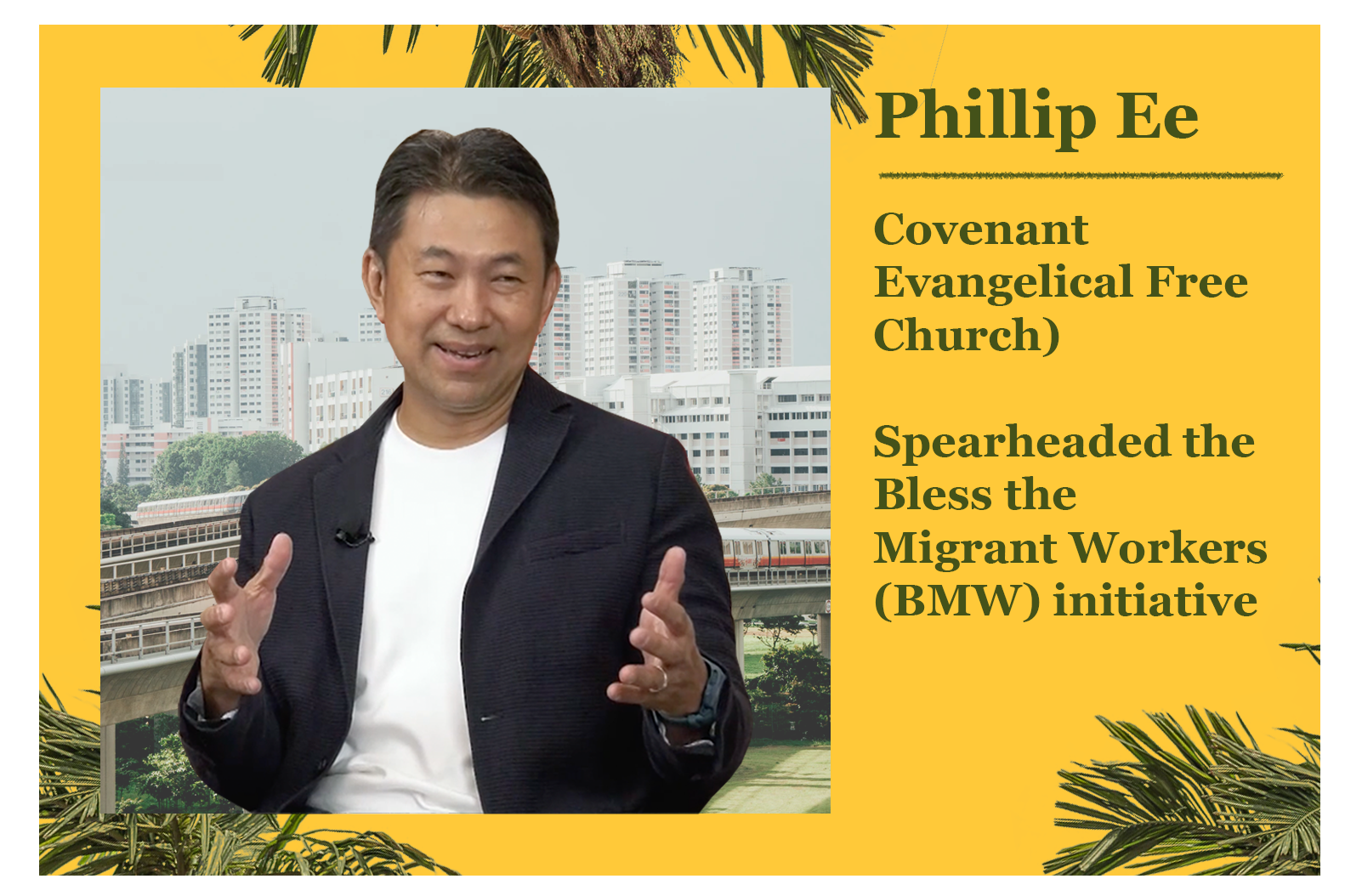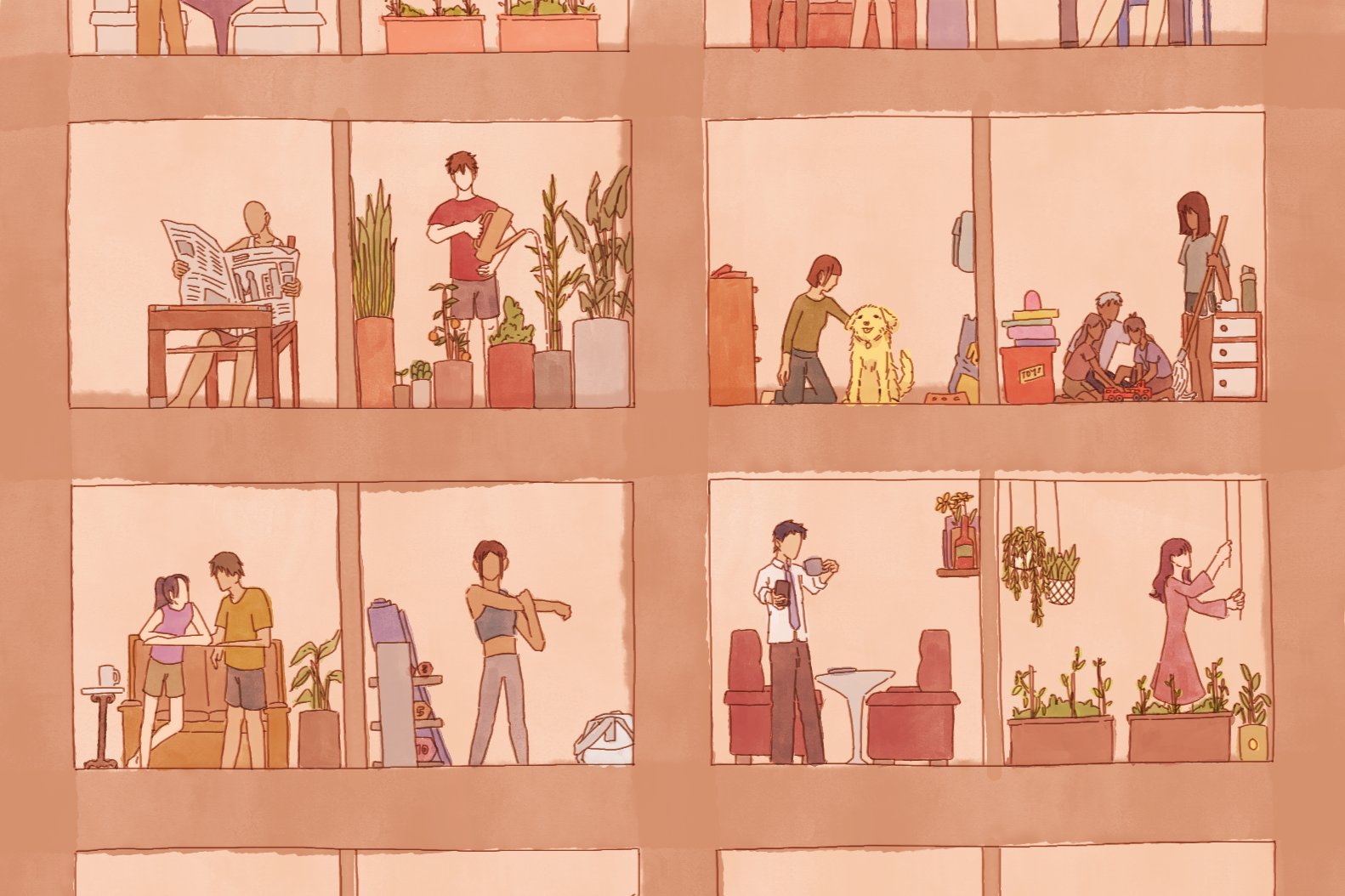One disruption local churches faced as a result of the pandemic? Overseas mission trip cancellations when Singapore closed its borders.
As a result, many churches pivoted to home missions. But what are home missions, and how do we execute them well?
Questions like these were the focus of the “Opportunities In Home Missions” digital workshop, an online session that was part of a conference in October organised by the Evangelical Free Church of Singapore (EFCS) in conjunction with its 60th anniversary.
The panel, moderated by Reverend Ivan Liew from Woodlands Evangelical Free Church, comprised of:
- Ng Zhiwen (Zion Bishan Bible-Presbyterian Church), who serves in integral mission movement Micah Singapore and Christian NGO Habibi International
- Phillip and Figin Ee (Covenant Evangelical Free Church), who spearheaded the Bless the Migrant Workers (BMW) initiative
A FALSE DICHOTOMY
To kick off the session, Zhiwen addressed how we sometimes have a compartmentalised view of missions: we have discipleship ministries and then we have missions ministries.
“If we’re not careful, we may forget that these two, discipleship and missions, are two sides of the same coin,” he pointed out.

Zhiwen’s point was that serious followers of Jesus Christ must grasp His heart for missions.
The upside that many do not see is that the more believers engage in missions, the more God shapes their hearts as disciples.
“You can’t grow as a disciple without being on mission,” he reflected. “We need to hold discipleship and missions together.”
For Zhiwen, effective missions are about balancing two aspects.
- Proclaiming the good news about Jesus to others so they decide to follow Him.
- Demonstrating the gospel through the good works God wants us to do.
“I want to be bold in proclaiming Jesus. But I want that message to be authenticated by the way I live my life and the way the Church lives out its community life as well,” he explained.
GOSPEL FROM THE GRASSROOTS
Zhiwen revealed that his concern is that we may be in danger of not doing either well and end up “scratching the surface” in these two areas when it comes to the Great Commission.
He put forward some possible things that might be holding churches back, like the fear of deeper conversations that may “rock the boat”.
Another observation is that Singaporeans often prefer comfort and convenience. This causes us to not step up, since serving our neighbours is costly, sacrificial work.
It’s not all bleak, however, as Zhiwen emphasised that he has been encouraged to see more people rise up in the area of home missions.
One such group is Bless the Migrant Workers (BMW), a ground-up ministry led by fellow panellists, Phillip and Figin.
During the beginning of the pandemic last year, migrant workers were placed under complete confinement due to a spike in dormitory cases.
When Figin read about this, she was convicted by the Holy Spirit to help. After discussions with Phillip, the couple decided to raise funds for the workers by reaching out to friends on WhatsApp.
They didn’t know at the time, but they had sparked off something huge.
“The moment we sent out those messages, it became viral. It went throughout the entire church and beyond,” recounted Phillip.
Within a short period, the Ees had raised a huge sum with still many more who were offering to help.
Realising they could not move ahead alone, the couple formalised the initiative with their church.
“We needed spiritual covering,” said Phillip. “This was a good thing, but it needed to be a God thing.”
BMW started with the simple act of food distribution. But through a small step like this, the Ees began to see God’s hand over their ministry.
“We were distributing food at Little India and only had about 50 packs of rice left. But we probably had over 100 people who were still in the queue,” recalled Figin.
So they prayed and to their astonishment — everyone in the queue managed to receive food!
Referring to how Jesus fed the 5,000, Figin described the event as the gospel “coming to life”.
From there, BMW began organising online interest groups to further meet migrant workers’ needs and to build relationships with them.
“Barriers started coming down, and when the lockdown was completed — prior to this current phase — we started to see families hosting migrant workers,” shared Phillip.
“We didn’t hear about such things before, so that was such a beautiful sight.”
Love, service without an agenda and establishing relationships.
Love, service without an agenda and establishing relationships were what paved the way for BMW to share the gospel with their new friends.
“We just said, ‘Brother, I have lunch for you’,” said Phillip on the simplicity of BMW’s strategy. Trust would be built up from that moment on, the starting point for friendships and deeper conversations.
Volunteers from Tamil and Bangladeshi ministries also stepped up and partnered with BMW to conduct optional Zoom Bible classes, providing a welcoming environment for migrant workers to learn and ask questions about faith.
HOW CAN WE EFFECTIVELY DO HOME MISSIONS?
What I heard from the panellists’ sharing encouraged me to begin thinking about what my part in home missions might look like.
But since I was new to it, I didn’t know what to expect or even where to begin.
Thankfully, the panellists provided wonderful handles on how to approach home missions. Here are three I found most helpful.
1. Don’t be afraid to try
We often hesitate to take the first step in missions due to the numerous fears we may have.
Reflecting on her own experience, Figin commented that these personal fears often turn out unwarranted.
For example, she initially believed that connecting with migrant workers virtually would be a difficult process as they might not be “digitally savvy”.

However, she soon found out that assumption was far from the truth.
“They may not have the financial capacity to buy the best mobile phone, but they definitely have basic phones on which they can be reached out to.”
Figin also found it easy to teach her new foreign friends how to use Zoom, as there are many online resources available.
To her, a good first step would be to remove misconceptions and perceptions that cause fear.
2. Follow God’s agenda, not your own
It is good to be passionate about sharing the gospel in home missions, but Phillip’s advice is to also be mindful not to treat those we are serve as “personal projects”.
“They are not a project,” he affirmed. “They’re not ‘church compliance’ where you need to win five souls this year because it’s your resolution with the senior pastor.
“They are fellow brothers, fellow human beings, fellow creations of the Lord.”
Though there will be times we don’t get to share about Jesus, the work is still worthwhile.
For Phillip, the focus should be on wholeheartedly meeting them at their points of need. God will then open doors for us to carry out His will.
And on sharing the gospel, Phillip believes we have to do it sincerely instead of simply “rushing the process”.
Phillip recounted an occasion he used the resource Steps To Peace, to talk about faith with a migrant worker who wanted to receive Christ.
“The resource is a ‘one minute gospel’. But with this brother, I spent two hours explaining it, in his context,” recalled Phillip.
“When he said yes the first time, I confirmed it another seven times to check if he he really understood!”
Phillip believes that though there will be times we don’t get to share about Jesus, the work is still worthwhile.
“If you didn’t get to share the gospel, is it considered a failed ministry? No!” he affirmed.
Phillip acknowledged that when a new friend of his comes to know Christ, it is often due to the efforts other servants of God have put in before BMW.
In the same way, though BMW may not see visible fruits all the time, Phillip believes that they are still sowing seeds of faith into these lives they serve.
3. Act in our churches and personal lives first
While it is good that many feel called to home missions and meet our nation’s need, Zhiwen believes it is important to ask ourselves one question before reaching out: “How are we as a church community embodying and living out a different kind of society?”
“In what way is the Church in Singapore underrepresented across different communities?” he continued.
Hard questions like these and an honest assessment of our efforts now are crucial if we are to see the Church rise up in love and action, and believers shining their light in our nation.
Zhiwen brought the workshop to a close with a quote by Lesslie Newbigin: “Live in such a way that will provoke the kind of questions for which the gospel is the answer.”
His desire is that believers would all demonstrate the change we wish to see nationally in our churches first, nothing that people watch the way the Church lives and takes care of their fellow man.
Good works out of love for God should provoke questions like: “What makes you so different?” That is where we can share the good news of Jesus Christ.
While COVID-19 has disrupted overseas outreach, there is still much that can and should be done locally.
To that end, home missions is something that must take place in our daily lives, for everyday interactions at home, in the workplace and elsewhere provide opportunities to do good and share the gospel.
That, to Zhiwen, is how Christians can effectively connect with their communities in the city and love one’s neighbour at the margins.
My key takeaway is that while COVID-19 has disrupted overseas outreach, there is still much that can and should be done locally.
I don’t know about you, but I’m fired up to reach the unreached, right here in this country we call home.
- What are some home missions you’ve heard of or can think of?
- Consider your skills and gifts. What might your role to play in these home missions be?
- What are some fears you have about home missions? Bring them to God in prayer.
- What is one practical thing you can do this week to live out the Great Commission?










